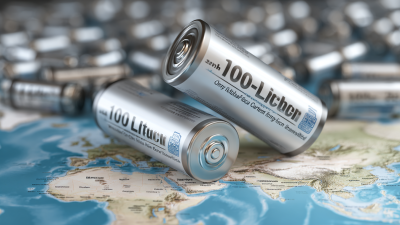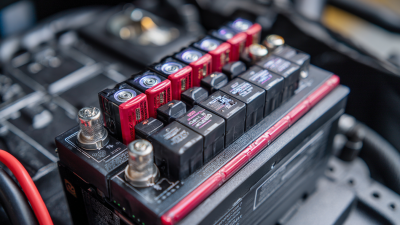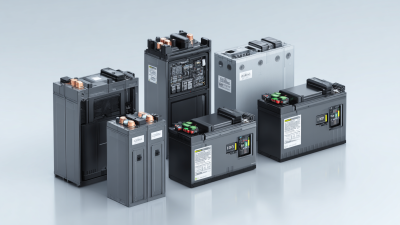As we look towards 2025, the advancements in battery technology are set to redefine power efficiency across various industries. Among the frontrunners in this evolution is the Reention Dorado Battery, known for its exceptional performance and sustainability metrics. Dr. Emily Carter, a leading expert in battery technologies and a frequent contributor to industry discussions, emphasizes the importance of continual innovation, stating, "The Reention Dorado Battery represents a significant leap forward, not only in terms of energy density but also in environmental impact, making it a game-changer for energy solutions."
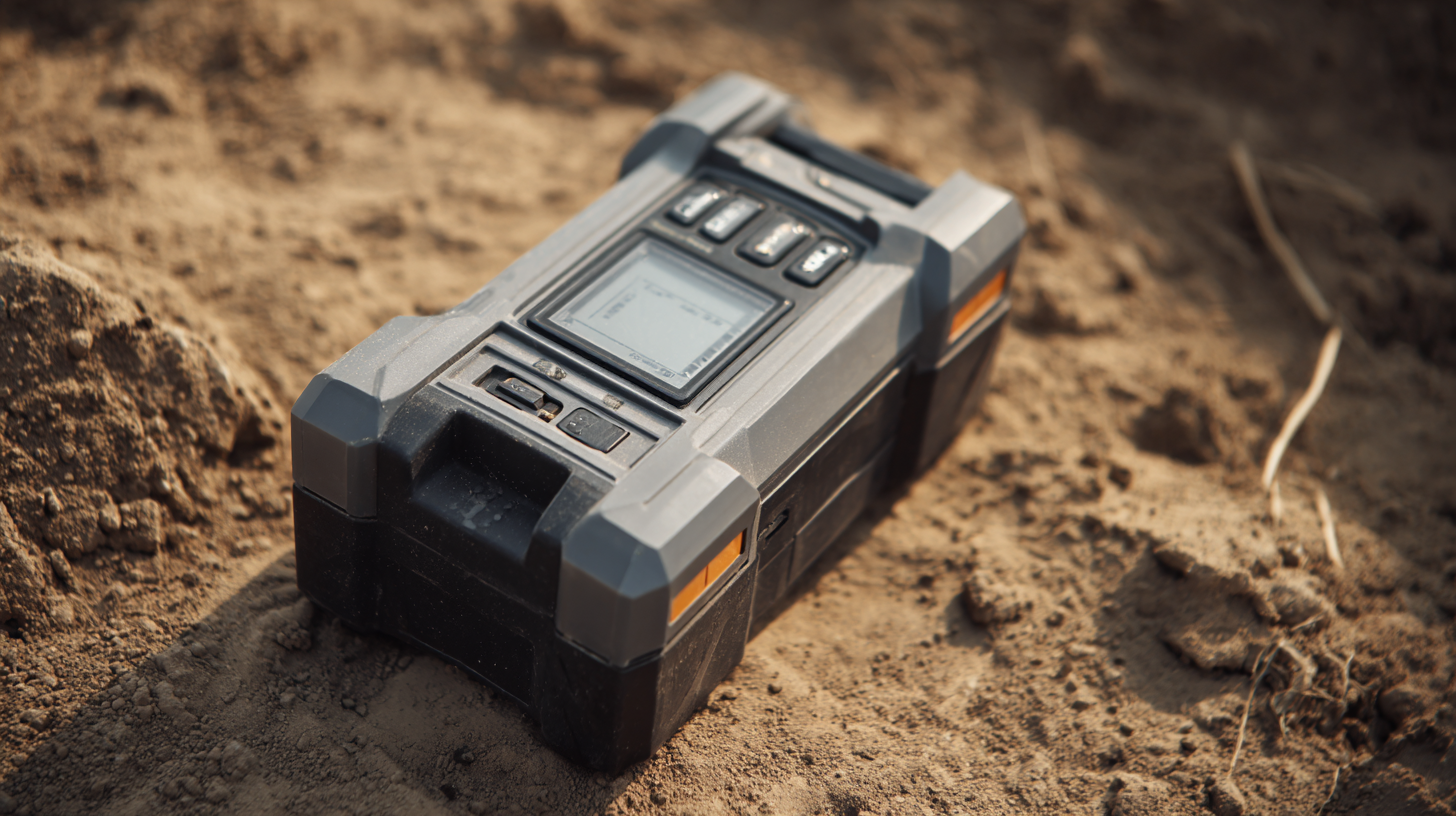
The top five innovations tied to the Reention Dorado Battery will be examined in this article, showcasing how these developments integrate cutting-edge technology with practical applications. From enhanced charge cycles to eco-friendly materials, these advancements promise unmatched power efficiency that can influence everything from consumer electronics to electric vehicles. As industries across the globe seek to reduce their carbon footprints while maintaining high performance, the relevance of the Reention Dorado Battery becomes increasingly crucial.
In an era where energy efficiency is paramount, understanding the trajectory of the Reention Dorado Battery will provide insights into the future of sustainable energy. With a strong emphasis on retention and performance, these innovations not only highlight the potential of current technologies but also set the stage for what is possible in the realm of efficient energy storage solutions.
The future of energy storage is evolving rapidly, with next-generation battery chemistries leading the charge towards enhanced retention efficiency. Innovations in lithium-sulfur and solid-state batteries promise remarkable improvements in energy density and longevity, essential for meeting the growing demand for reliable power sources. These advanced materials not only extend battery life but also reduce environmental impact, making them a sustainable choice for both consumers and industries.
Tips for maximizing battery retention include ensuring proper charging practices to avoid over-discharge and maintaining optimal storage conditions. Keeping batteries at moderate temperatures and away from extreme heat can significantly enhance their lifespan and efficiency. Moreover, regular software updates for battery management systems can optimize performance by adjusting for usage patterns and improving energy distribution.
As companies invest in these next-generation chemistries, users can expect significant advancements in battery technology that will redefine power efficiency standards. The innovative features of these new batteries will cater to a range of applications, from electric vehicles to renewable energy storage, meeting the critical need for powerful, efficient, and long-lasting energy solutions.
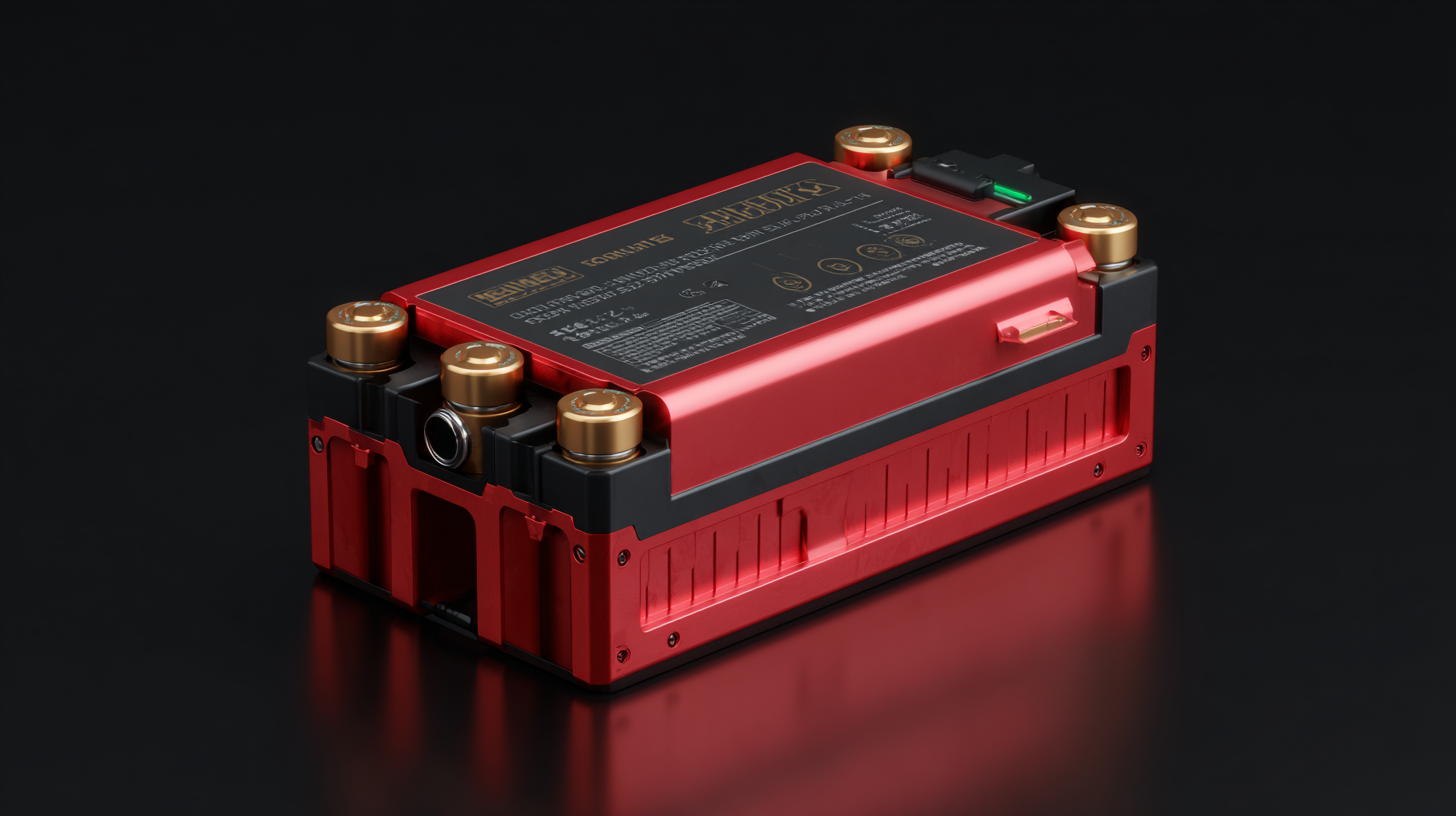
The advancement of Innovative Battery Management Systems (BMS) is playing a crucial role in the push for more efficient power usage in the energy sector. These systems not only enhance the lifespan of batteries but also optimize their performance by continuously monitoring parameters such as voltage, current, and temperature. By employing sophisticated algorithms, modern BMS can adaptively manage the charging and discharging process, ensuring that the batteries operate at their peak efficiency. This revolution is critical for industries aiming to reduce energy costs while maintaining high-performance standards.
Tips for maximizing battery efficiency include integrating advanced BMS technology that can provide real-time data to stakeholders. Regular maintenance checks and software updates on existing systems can yield better long-term results. Additionally, exploring battery recycling options and energy recovery systems can not only extend the life of your batteries but also lessen environmental impact, contributing to sustainable practices in power usage.
In the realm of innovation, collaboration between tech developers and battery manufacturers is essential. By sharing insights and resources, these partnerships can lead to groundbreaking strategies that enhance battery capabilities. As we move towards 2025, staying informed about the latest trends in BMS will be key for any organization aiming to leverage unmatched power efficiency in their operations.
The advancement of smart technologies significantly influences the longevity and efficiency of battery systems, particularly in electric vehicles (EVs). By integrating Internet of Things (IoT), blockchain, and machine learning, developers are enhancing battery management systems to monitor real-time performance, optimize charging patterns, and predict maintenance needs. This intelligent oversight not only prolongs battery life but also maximizes energy usage, thereby reducing waste and improving overall vehicle efficiency.
Moreover, the circular economy's principles are being integrated with smart energy grids, creating a sustainable framework for energy management. These smart grids facilitate resource optimization, enabling better energy distribution and supporting renewable sources. As innovative algorithms improve power quality during charging, the collaborative effect of these technologies will lead to unmatched power efficiency in future battery systems, paving the way for a more sustainable and efficient energy landscape.
| Innovation | Power Efficiency Gain (%) | Battery Longevity (Cycles) | Smart Technology Impact |
|---|---|---|---|
| Ultra-Fast Cooling Technology | 20% | 2000 | Enhanced thermal management ensures sustained efficiency. |
| AI-Driven Charging Algorithms | 25% | 3000 | Optimizes charge cycles based on usage patterns. |
| Self-Healing Materials | 30% | 2500 | Increases lifespan by repairing internal damage. |
| Graphene-Based Anodes | 15% | 5000 | Improves charge capacity and reduces charging time. |
| Smart Battery Management Systems | 22% | 3500 | Monitors health and usage to optimize battery performance. |
As the electric vehicle (EV) industry burgeons, the importance of sustainable practices in battery production becomes increasingly evident. Innovations in battery recycling, particularly closed-loop systems, are crucial for mitigating the environmental footprint associated with lithium-ion batteries. According to industry reports, nearly 95% of battery materials can be recycled through these advanced methods, significantly reducing the need for raw material extraction and minimizing harmful emissions (source: industry studies on battery lifecycle management).

In parallel, initiatives focused on green lithium extraction present a transformative approach to battery production. By using methods that require less water and result in lower greenhouse gas emissions, these practices align perfectly with the sustainable goals of reducing the environmental impact of EV manufacturing. Research indicates that green extraction techniques can decrease water usage by as much as 50%, thereby offering a more sustainable alternative to traditional lithium mining operations. Such advancements not only bolster supply chain efficiency but also contribute to a circular economy where resources are reused, benefiting both manufacturers and the environment.
The emergence of innovative battery recycling technologies is critical in promoting energy efficiency, particularly as the world shifts toward electric vehicles (EVs). The electric vehicle sector is propelling the demand for sustainable practices, notably in battery lifecycle management. With the global lithium-ion battery recycling market projected to grow significantly from $5.41 billion in 2024 to $24.15 billion by 2032, it is clear that stakeholders are recognizing the importance of not just producing batteries but also rethinking their end-of-life processes.
Sustainability in battery recycling plays a pivotal role in enhancing energy efficiency and supporting a circular economy. As environmental regulations tighten, companies are incentivized to innovate recycling methodologies that minimize waste while recovering valuable materials. The anticipated growth of the global EV battery recycling market to $24.5 billion by 2035 indicates that there is a robust investment outlook, highlighting the intersection of technological advancement and environmental responsibility in the energy sector. This strategic focus on recycling will not only enhance energy security but also foster a sustainable future for battery technologies.
This chart illustrates the projected energy efficiency percentages of the top five innovations in battery technology for 2025, highlighting the advancements in retention and recycling that are key to unmatched power efficiency.
